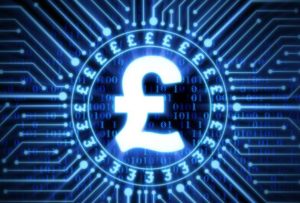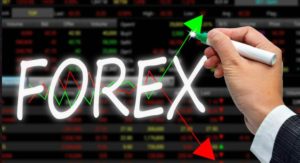Table of Contents
What Would Indicate That You Should Invest in the Pound Again?
Recent events in the UK have seen the British pound hit a record low against the US dollar. As the government introduced a series of radical financial measures, the markets reacted violently and saw some of the biggest and most shocking currency fluctuations in modern history.
For some investors and traders, times of economic instability may be worrying. For some, however, they can represent an opportunity. The shrewd investor can make significant returns if they can accurately predict currency and market movements. As the economic situation in the UK remains uncertain, this will affect the pound and other global currencies. How can traders take advantage of this? When the pound is low, it can be difficult to know whether to buy or sell. Let’s take a look at how the recent events have impacted the pound and discuss some Forex trading UK tips.
Is It a Good Time to Invest in the Pound After Its Monumental Slump?
What happened to the pound?
The British pound and the health of the UK economy have been plastered all over newspaper headlines across the world for the past week. Grim outlooks of future financial scenarios and bleak forecasts of economic turmoil have been prevalent, with industry experts and commentators lining up to condemn the actions of the government that appear to have caused this situation. So, what actually happened? Let’s find out.

Last Friday, new UK Prime Minister Liz Truss and new Chancellor of the Exchequer Kwasi Kwarteng unveiled their ‘mini-budget’. This set of radical economic policies promised to introduce a swathe of changes, including massive tax cuts paid for by substantial increases in borrowing.
The market reaction to the UK government’s announcement was immediate, investors were alarmed by the extremity of the policies, opting to sell off their shares in the currency in advance of it falling. This worked to drive the value of the pound down even more, eventually hitting an all-time low of $1.04 against the dollar on Monday 26 September.
What does this mean for the economy?
This sudden and sharp drop in the pound’s value has far and wide-reaching implications for the UK economy and consumer landscape.
Fuel prices including gas and petrol are priced in dollars, so these are likely to increase as long as the pound remains weak compared to its US counterpart. Food prices are set to increase, as will other products that the UK imports such as electronics, electric cars and fuel cars. When combined with the current cost of living crisis in the country, this news could spell bad news for consumers and businesses alike.
What does this mean for Forex traders?
Forex, or foreign exchange, trading, is the process of converting one currency into another to make a profit. Forex trading uses currencies that are matched in pairs, the pound against the dollar (GBP/USD) or the dollar against the euro (USD/EUR), for example. The currency on the left is known as the base, while the currency on the right is called the quote. Each pair is given a quote value, which indicates how much of the quoted currency it takes to purchase one unit of the base currency.

Traders operate by making predictions and projections on potential market movements and currency fluctuations. If a currency is expected to do well and strengthen, traders will buy that base currency. If a currency looks like it is going to fall and decrease in value, traders will sell that base currency.
Some shrewd traders may have already profited by the pound’s poor performance by borrowing the currency from a broker and selling at the market price. They would then buy the assets back after the value dropped at a reduced rate, return these to the broker and pocket the difference as profit. This is a process known as short selling or ‘shorting’.
When to invest in the pound?
While investing while a currency is weak and low in value might seem like a risky move, it can be a wise financial choice in the long run. Established currencies like the pound and the dollar are relatively stable. When they do face periods of volatility or wild fluctuations, they have a tendency to stabilize again after a short period of time. In fact, the pound already appears to be returning to values seen before the government’s economic overhaul.

If predictions are correct and the intervention for the Bank of England to stabilise the economy and a U-turn on policy from the government will further rejuvenate the pound’s value, now would be a good time to invest while prices still remain relatively low. However, nothing is without risk. While the pound could continue to recover and strengthen, its position remains uncertain, it could quite easily fall again amid a fragile economic environment.
Conclusion
Making any sort of investment can be a risky venture, but the potential for returns is there if you play your cards right. Being able to read and accurately predict market behaviour comes from both experience and careful research and analysis. If you’re looking to invest in the pound to earn money, there are indications that now is the time, as it looks set to recover from its slump at the beginning of the week.
Author Profile

- Guest Blogger & Outreach Expert - Interested in Writing Blogs, Articles in Business Niche | News Journalist By Profession in the United Kingdom
Latest entries
 BusinessJuly 1, 2025Wills for Business Owners: Safeguarding Your Enterprise and Legacy
BusinessJuly 1, 2025Wills for Business Owners: Safeguarding Your Enterprise and Legacy Business TipsJune 6, 2025Confidence That Connects the Message
Business TipsJune 6, 2025Confidence That Connects the Message GamingMay 9, 2025Why AI Personalization Is Key for the Next Generation of Betting Platforms?
GamingMay 9, 2025Why AI Personalization Is Key for the Next Generation of Betting Platforms? Business StrategiesMay 1, 2025Key Business Development Strategies for Fostering Sustainable Growth
Business StrategiesMay 1, 2025Key Business Development Strategies for Fostering Sustainable Growth




